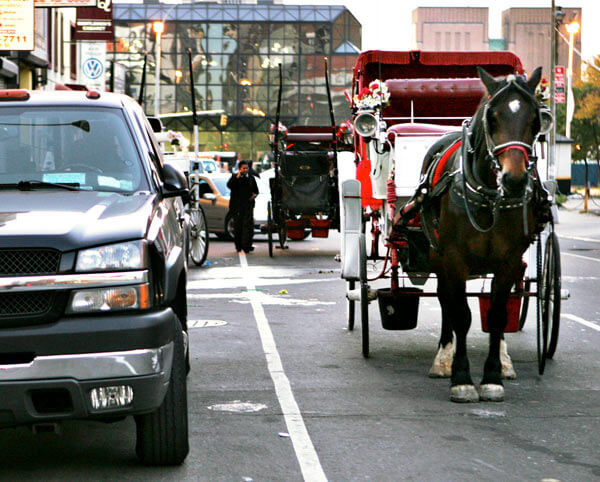By Rich Bockmann
State Sen. Tony Avella (D-Bayside) said a recent string of highly publicized accidents in Manhattan involving horse-drawn carriages demonstrates the need to ban the industry from operating in New York City.
In 2011, there have been seven carriage horse incidents investigated by the American Society for the Prevention of Cruelty to Animals, which regulates the industry in Central Park. In the most recent, a horse fell two weeks ago while being driven with four passengers. The horse was examined by its veterinarian and inspected by the ASPCA, and has been cleared to return to work.
“This issue is clearly coming to a head just because of a number of accidents reported lately,” the senator said. “The industry is trying to be on its best behavior and it’s still happening.”
As a city council member, Avella sponsored a bill calling for a ban on the industry in New York City. In May, he introduced a similar bill in the Senate, and state Assemblywoman Linda Rosenthal (D-Manhattan) introduced a companion bill in the Assembly.
Eva Hughes, a Bayside resident and constituent of Avella’s, is also the vice president of the Horse and Carriage Association of New York, and sharply disagrees with the senator.
“Sen. Avella has been made aware of our stellar safety record. He can say it’s dangerous all he wants all day long. The fact is, statistically, our industry is the safest equine pursuit,” she said. “With only three deaths in 30 years, it’s not a good record; it’s an extraordinary record.”
Hughes said she estimates about half a dozen owners and drivers live in Bayside.
“Tony Avella should hang his head in shame for wanting to put working families out of business,” she said.
Avella’s bill does not have any co-sponsors, but he believes that after years of trying the tide of public opinion is finally turning in his favor.
“Once the [legislative] session begins again in January, I’m going to lobby my colleagues in the Senate and put together a lobbying day for the animal rights groups,” he said.
Avella said the industry is inherently detrimental to the animals’ health in a modern metropolis.
“The ASPCA said earlier … that there’s no way for the industry to operate in Midtown traffic and not be cruel to animals,” he said. The city [Department of Health], on its website, has a training manual for drivers of horse carriages and in one section it lists the number of things that can spook a horse, like air brakes on a truck and horns honking. That happens every second in Midtown.”
In response to the most recent accident, Mayor Michael Bloomberg defended the practice.
“Carriage horses have traditionally been a part of New York City,” he said. “The tourists love them, and we’ve used from time immemorial animals to pull things. They are well-treated, and we’ll continue to make sure that they are well-treated.”
Avella disagreed with that line of reasoning.
“The mayor doesn’t know what he’s talking about. They didn’t always exist. The horse carriage industry as we know it today started in 1935, and it was only in the late 1990s that they could go beyond Central Park. To say it’s always existed is to be oblivious,” he said.
The senator also disagreed with the mayor’s implication that the industry should be preserved for the sake of increased tourism.
“This is the stupidest statement. You’re not going to tell me that someone from Europe or California is not going to come if we ban horse carriages? That’s just an insult to everything else New York City has to offer,” he said.
Reach reporter Rich Bockmann by e-mail at rbockmann@cnglocal.com or by phone at 718-260-4574.


































